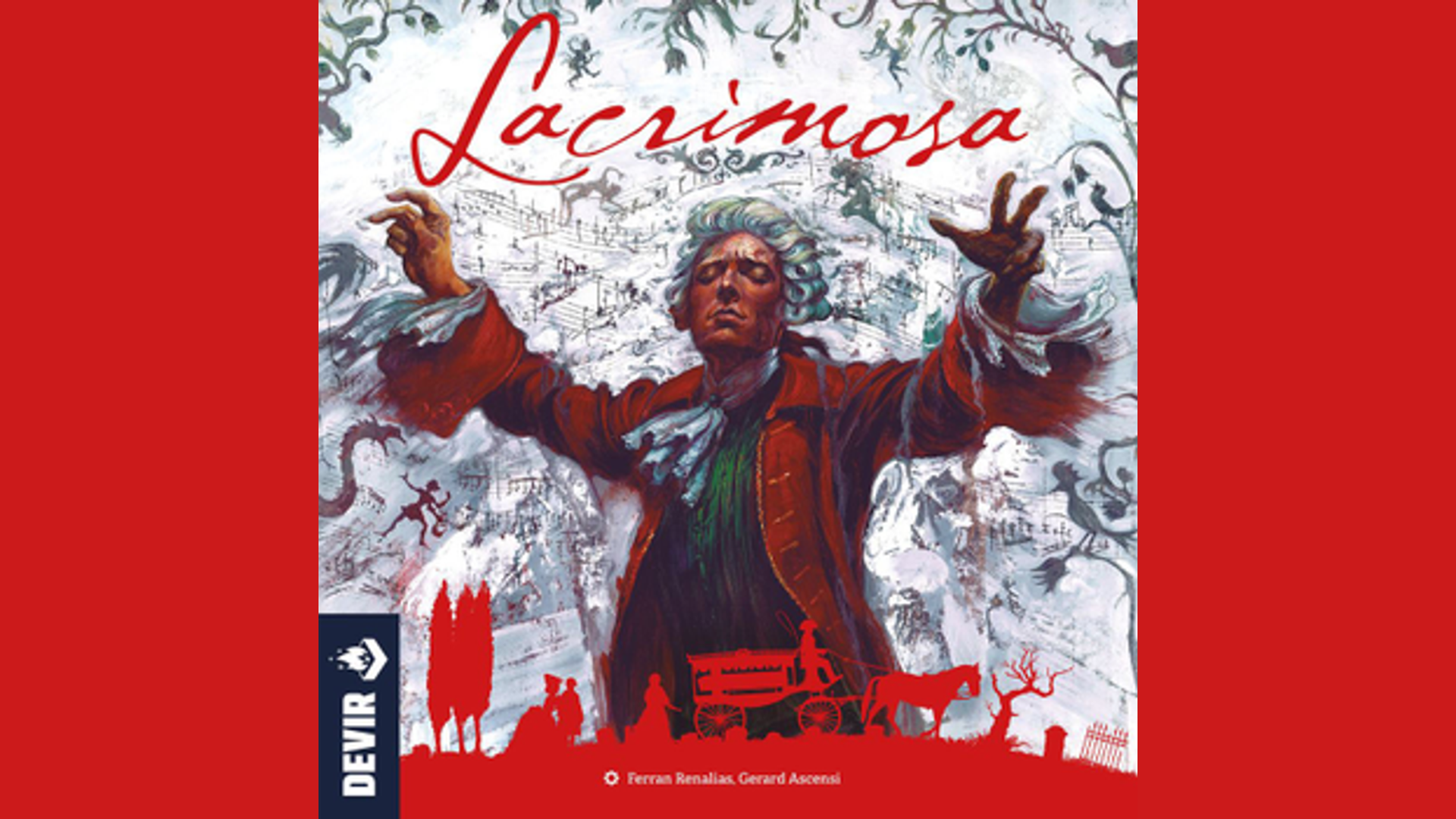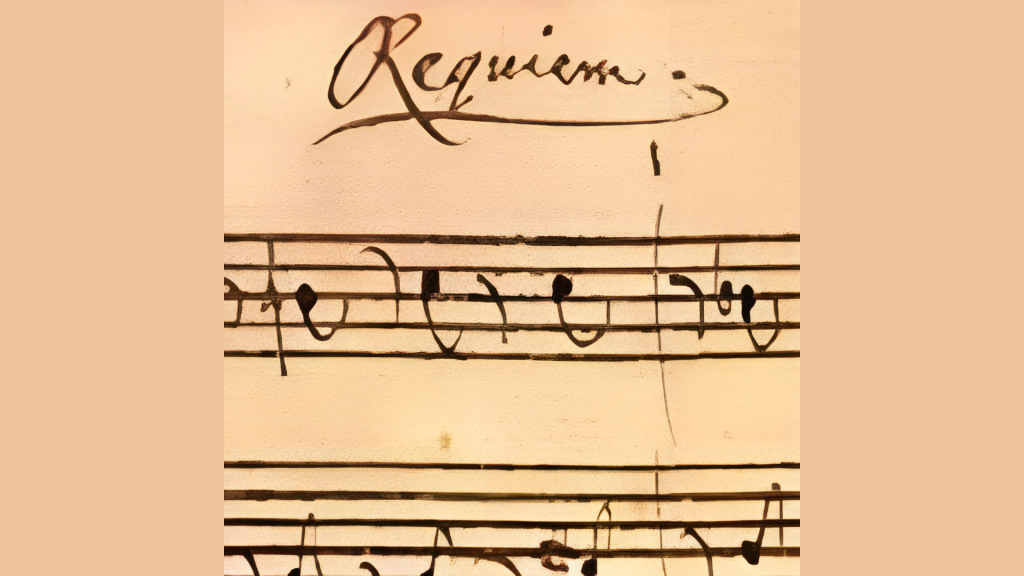Wolfgang Amadeus Mozart was a famous classical composer from Austria. He began making music as a child and wrote over 600 pieces in his short life.
His music includes symphonies, operas, piano works, and chamber music. Some of his most well-known pieces are The Magic Flute, Eine kleine Nachtmusik, and Requiem.
While awards as we know them today did not exist in his time, Mozart was widely praised by kings and top musicians in Europe. His music continues to inspire people worldwide and is frequently performed in concerts.
About the Song
Lacrimosa by Mozart uses Latin words from the Requiem Mass. The choir sings about a day of tears and judgment.
The music begins softly and grows stronger. Even with just Mozart’s eight bars, it conveys both sadness and hope. It reminds listeners of sorrow and mercy.
| Detail | Information |
|---|---|
| Released date | 1792 |
| Album | Requiem Mass in D minor, K.626 |
| Writer | Traditional |
| Producer | Franz Xaver Süssmayr |
Lacrimosa Lyrics by Wolfgang Amadeus Mozart

Chorus
Lacrimosa dies illa
Qua resurget ex favilla
Judicandus homo reus
Lacrimosa dies illa
Qua resurget ex favilla
Judicandus homo reus
Bridge
Huic ergo parce Deus
Pie Jesu, Jesu Domine
Outro
Dona eis requiem
Dona eis requiem
Amen
Meaning of the Song Lacrimosa
Lacrimosa from Mozart’s Requiem means weeping or tearful in Latin and is a strong expression of sorrow, judgment, and the hope for mercy.
The words come from the Catholic Requiem Mass and speak about the Day of Judgment, when souls are judged for their actions. The piece shares the sadness of life and the wish for peace and rest.
Mozart’s music brings out these feelings with soft yet moving sounds that convey pain, fear, and a longing for kindness.
The movement is short but powerful, offering a voice to human grief and the search for comfort beyond death.
Lacrimosa English Translation
Full of tears shall be that day
When from the ashes shall arise
All humanity to be judged
Full of tears shall be that day
When from the ashes shall arise
All humanity to be judged
Spare us by your mercy lord
Merciful Jesus, Jesus Lord Give, give them rest
Give them (give them)
Give, give them rest
Amen
Significance of Lacrimosa in Classical Music
Lacrimosa is one of the most iconic movements in classical music. It is praised for its haunting melody, rich harmonies, and emotional impact.
As part of Mozart’s final composition, it represents the peak of sacred choral writing in the Classical era.
Its use of voice and orchestra together creates a sense of sorrow and dignity that became a model for later composers.
Lacrimosa also stands as a symbol of Mozart’s genius, demonstrating how music can convey profound human emotions with elegance and clarity.
Its Impact can be seen in many later funeral works and modern classical performances.
Similar Songs Like Lacrimosa
Here are some songs, each with its unique mood, meaning, and musical feel, just like Lacrimosa:
- Dies Irae: Full of fire and loud energy, this movement warns of the final judgment. It rushes forward with thunderous drums and fierce choral lines.
- Sanctus: Joyful and bright, this section praises the holiness of God. With uplifting voices and intense rhythms, it feels like a grand moment of celebration and glory.
- Confutatis: This piece contrasts fear and hope. The heavy male voices sound like punishment, but soft female lines bring a peaceful prayer for rescue.
- Agnus Dei: Quiet and thoughtful, this part asks for forgiveness and rest. Its slow, smooth melody feels like a final goodbye filled with calm.
Similar Artists Like Wolfgang Amadeus Mozart
Below is a list of a few classical artists whose music carries a spirit and creativity often compared to Mozart’s work:
- Ludwig van Beethoven
Genre: Classical
Top Albums: Symphony No. 9 (1824), Piano Sonata No. 14 (1801) - Johann Sebastian Bach
Genre: Classical
Top Albums: Brandenburg Concertos (1721), Mass in B minor (1749) - Franz Joseph Haydn
Genre: Classical
Top Albums: The Creation (1798), Symphony No. 94 “Surprise” (1791) - AntonioVivaldi
Genre: Classical
Top Albums: The Four Seasons (1723), Gloria (1715) - Franz Schubert
Genre: Classical
Top Albums: Symphony No. 8 “Unfinished” (1822), Winterreise (1827)
Frequently Asked Questions
What Makes Lacrimosa so Emotionally Powerful?
The slow tempo, rich harmonies, and choir’s sorrowful tone create a profoundly moving experience.
Why is Lacrimosa Often Played at Funerals?
Its calm, serious sound offers peace and reflection during moments of loss.
Did Mozart Complete Lacrimosa Before His Death?
No, Mozart only wrote part of it. His student Süssmayr finished the rest.
Can I Understand Lacrimosa Without Knowing Latin?
Yes, the emotion in the music is clear, even without understanding the words.





















